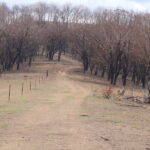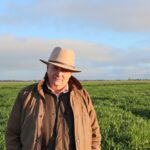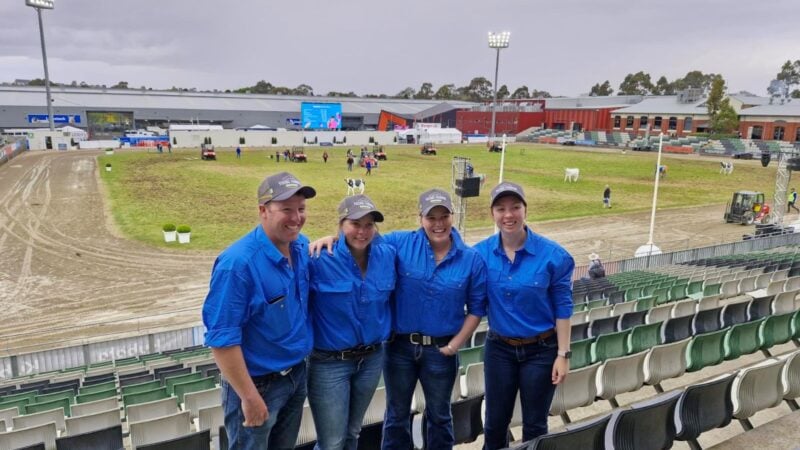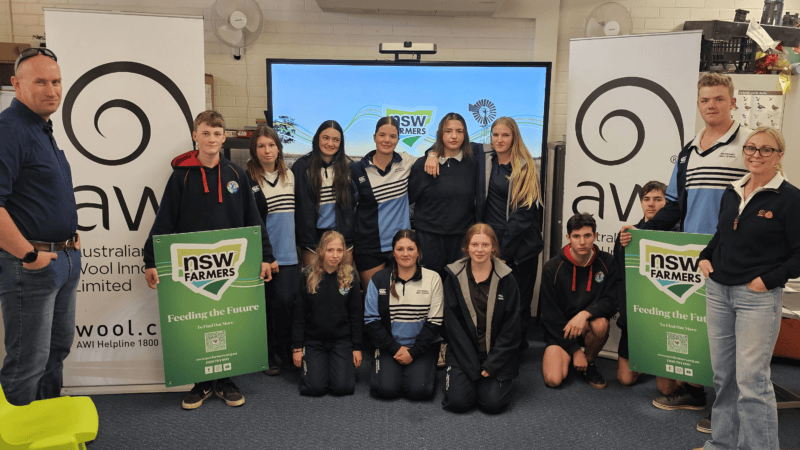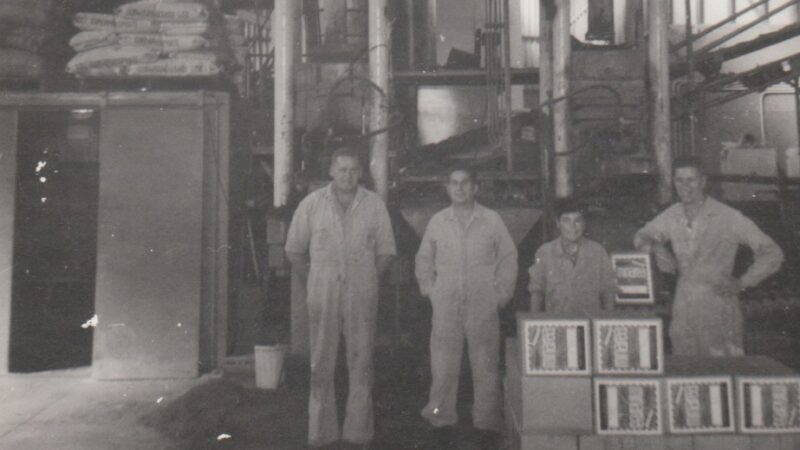NSW Farmers is inviting all farmers hit by the 2019/2020 bushfires to fill in a…
Clarkson’s Farm reality for UK farmers
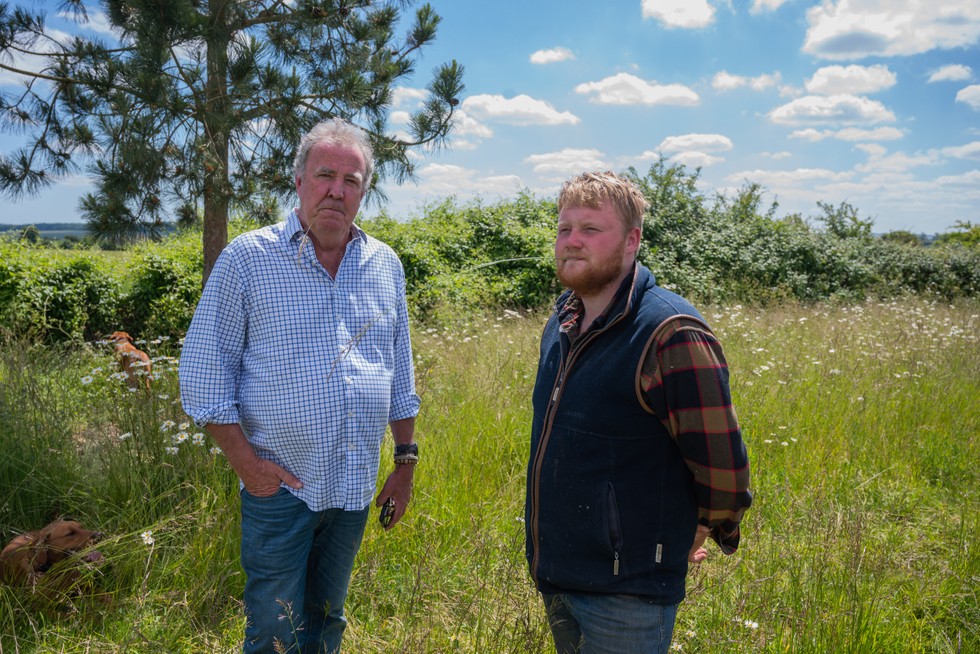
Motoring journalist Jeremy Clarkson has become an unlikely hero for British farmers thanks to his surprise reality TV hit Clarkson�s Farm.
Known for his supercar antics on shows like Top Gear, Clarkson is now the proud owner of a Lamborghini tractor as the engine behind farming operations at the 400-hectare Diddly Squat Farm in Oxfordshire.
The first series of Clarkson�s Farm won critical acclaim and earned Clarkson The National Farmers Union�s (NFU) 2021 Farming Champion of the Year award at the British Farming Awards. Prime Video quickly signed up the Diddly Squat team for a season two, which is now airing on the streaming service.
While Clarkson�s fortunes are clearly financing an over-indulgence in farm machinery, the challenges the farm business faces have resonated with the plight of UK farmers in a post Brexit world.
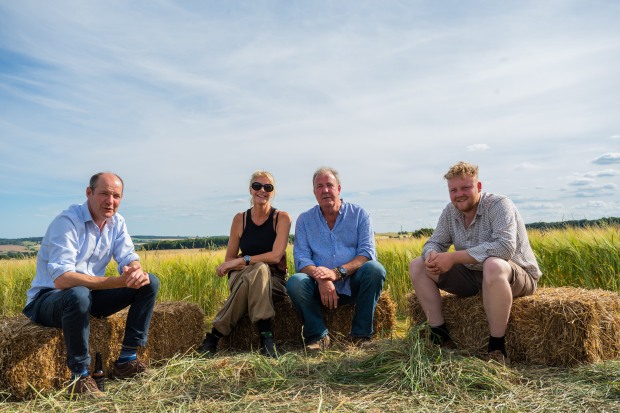
In season two of Clarkson�s Farm, the outspoken Clarkson is not afraid to point out that farmers have been betrayed by Brexit, with their lost EU subsidies replaced by meaningless slogans.
UK farmers currently receive no payments under the EU’s common agricultural policy. In addition to the subsidy cuts, poor weather conditions, and the COVID-19 pandemic resulted in challenges for farmers since Brexit.
The second season of Clarkson�s Farm focuses on Diddly Squat Farm recovering $82,500 pounds that the farm business has lost in subsidies.
Clarkson�s plan is to transition from sheep to cattle, and add on-site restaurant based around Diddly Squat beef and produce grown on the farm.
Talking ahead of season two, Clarkson said coping with the fall-out of Brexit has been a biggest issue for the farm business.
“The government are saying, ‘You’re still going to get subsidy’ and we�re saying, ‘Okay, what do we have to do to get it?;, but the government won’t tell us,” he said.
“It’s like FIFA saying, ‘We’re having new rules in football next year’. ‘What new rules?’ ‘We don�t know what they are, but there are going to be new rules’. Well, you can�t prepare for that.�
NFU President Minette Batters said Clarkson has brought an understanding of many of the issues faced by farmers to the British public � from profit margins to diversification.
�Jeremy Clarkson has been a vocal champion for the British farming industry. His enthusiasm comes through in spades,� Ms Batters said.
�Jeremy has been a strong supporter of our Back British Farming Day and echoed its call for UK food self-sufficiency not to slip below 60% � and went further, calling for government to make 80% self-sufficiency a target.�
�His show has really resonated with the public, brought alive the ups and downs of our industry to a huge new audience, and transported British farming into the living rooms of families across the country.�
National Farmers Union President Minette Batters
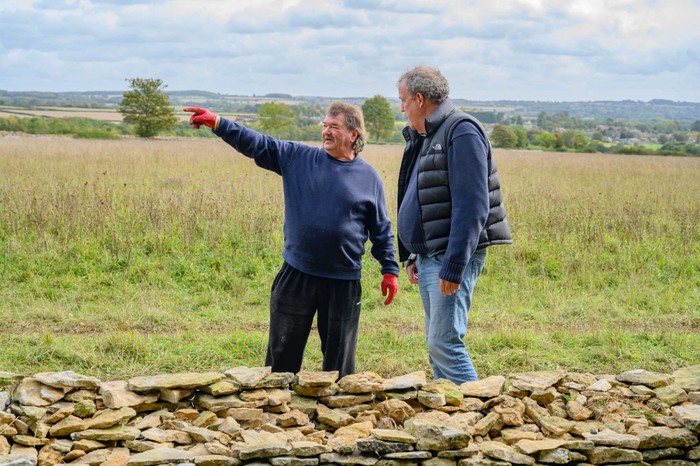
Clarkson�s Farm does tell it like it is with constant struggles against the all-pervading British weather, biosecurity threats, endless red and green tape, high fertiliser prices and visits from the �soil police� and the �cow police�. Australian farmers would relate to the planning bureaucracy barriers to diversifying and value-adding Diddly Squat Farm�s cereal crops, beef, vegetables and eggs.
The show�s most appealing aspect, though, is comedy, and the funny parts of Clarkson�s Farm are very funny.
There is endless amusement at Clarkson�s own na�ve lack of a basic understanding of farming and the odd-couple relationship between the clueless landowner and Kaleb, his assistant.
His interactions with fan favourite Gerald Cooper, a generational farmer who often comes to give Clarkson helping hand, are hilarious.
Clarkson’s Farm wrong on Aussie beef
Meat and Livestock Australia (MLA) have hit back at claims from Clarkson that Australian beef is �rubbish�.
In the opening episode of Season two, Clarkson remarks that one of the reasons behind his transition from lamb to beef was the UK-Australia Free Trade Agreemment (A-UK FTA).
�And then I thought, Boris has done the deal now with Australia,� Clarkson says.
�No good could come of that, as far as I can see. Cheap, rubbish beef coming in.
�If we get grass fed beef, then I open a restaurant so I don�t have to worry about competing with the Australians.�
An MLA spokesperson said Mr Clarkson had plainly not tasted a quality Australian grown steak.
�He�s clearly missing out,� an MLA spokesperson told The Muster.
�We feel sorry for Mr Clarkson � not just because of his negative comments about the Australian beef industry, but mostly because his comments suggest he hasn�t had the opportunity to try Australian beef.”
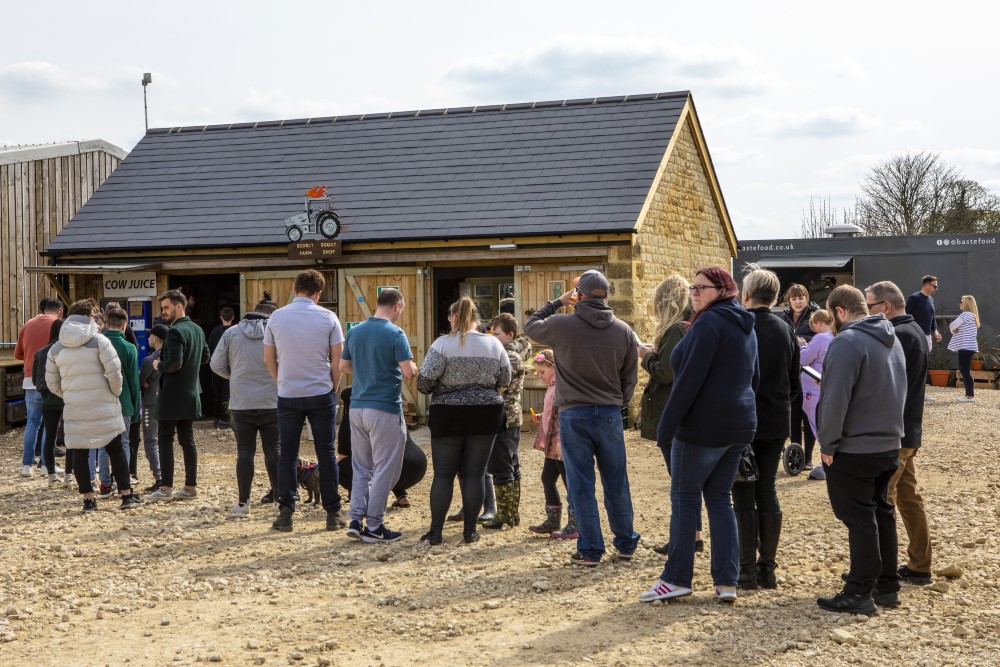
The (A-UK FTA) was signed on 17 December 2021. There were hopes the deal would be ratified and enter into force mid-2022 however the timeline was amended due to a range of factors including the Australian federal election, the passing of the Queen and the revolving door at 10 Downing Street.
The deal will result in Australian beef and sheepmeat exports entering the UK under a tariff rate quota (TRQ) regime. Initial TRQ tonnages include 25,000 tonnes for sheepmeat and 35,000 tonnes for beef, which will gradually increase over a 10-year transition period.
�We�re excited about the Australia UK trade agreement because of the opportunities it provides the industry and also for British consumers to get access to amazing Australian-grown red meat,� the MLA spokeperson said.
�We�re confident that when more Australian red meat hits the plates in the UK under the FTA, UK consumers will be impressed by the amazing quality and how great it tastes.”


